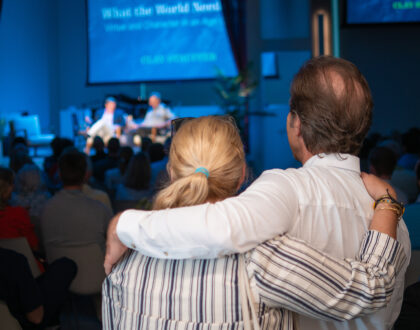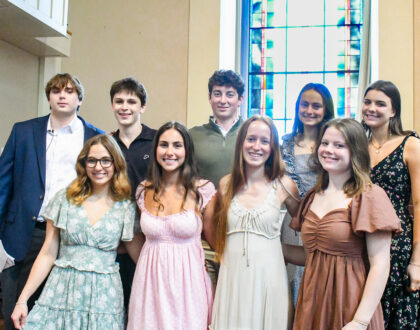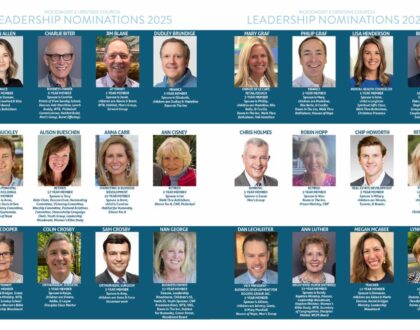Being Spiritually Connected in Anxious Times

When we started the Philippians series, I asked individual people and groups what bothers them the most about our culture and the current state of society. I shared some of these responses on Sunday. The answers will vary but here are some of the most common responses that I hear:
• Everything is political and everybody wants to know which team you are on.
• Social media is out of control and is ruining many lives. People are so obsessed with posting about their lives that they forget to simply live their lives. Now, we can’t put that genie back in the bottle.
• The news media drives fear and division. Since the news cycle is 24 hours a day, the media tells you the news and what to think about what is happening.
• People are too selfish and self-centered, only thinking about themselves and their own interests. Whatever happened to service, sacrifice, and loving neighbor?
• Civility is gone. Lost are the days of disagreeing with somebody and still respecting them as a fellow human being.
• Christianity’s influence is waning in our culture, but both Christians and non-Christians have contributed to the moral rot of society. In fact, Jesus wouldn’t recognize many of today’s Christians.
• Fear and anxiety are out of control and are most evident in our children and their behavior.
• The growing gap between the haves and have-nots is driving crime and leading to all kinds of other problems.
• Alcohol and drug addiction is ruining marriages, families, and friendships. People become addicted while trying to cope with their pain.
How would you answer this question? What bothers you most about the times in which we are now living?
David Brooks has addressed many of these challenges in recent years. He has just published a new book titled How To Know a Person (Penguin Random House). Brooks is very concerned with division, polarization, the lack of moral leadership, and the way we treat one another in this culture. In his research for this book, he has traveled the country to listen and meet many different types of people from all walks of life. Brooks says, “There is one skill that lies at the heart of any healthy person, family, school, community organization, or society: the ability to see someone else deeply and make them feel seen – to accurately know another person, to let them feel valued, heard, and understood. Yet, we humans don’t do this well.”
Brooks is right, but why is this the case, and how can we change it?
Most research now shows that joy, happiness, and meaning in life come from our relationships, but if our relationships are unhealthy, that is a big problem. Brooks says that we need to return to being able to do small and basic things well: “Disagreeing without poisoning the relationship; revealing vulnerability at the appropriate pace; being a good listener; knowing how to end a conversation gracefully; knowing how to ask for and offer forgiveness; knowing how to let someone down without breaking their heart; knowing how to sit with someone who is suffering; knowing how to host a gathering where everyone feels embraced; knowing how to see things from another point of view.” Most religious traditions teach these practices, but as our society has become much more secular, many of our young people are not learning these values.
We all play a role in restoring respect and dignity to our social networks and communities. More importantly, we must teach our young people the importance of moral leadership, civility, active listening, and character formation. Without these things, we will continue to be a culture that doesn’t respect differences, doesn’t affirm the basic humanity of others, and lets the fear and anxiety all around us set the tone for our interactions. All of this starts one relationship at a time.
Recommended Posts

Healing, Growth, & Renewal Over Time
May 30, 2025

Values for Our Graduates
May 20, 2025

Leading in the Church
May 16, 2025

